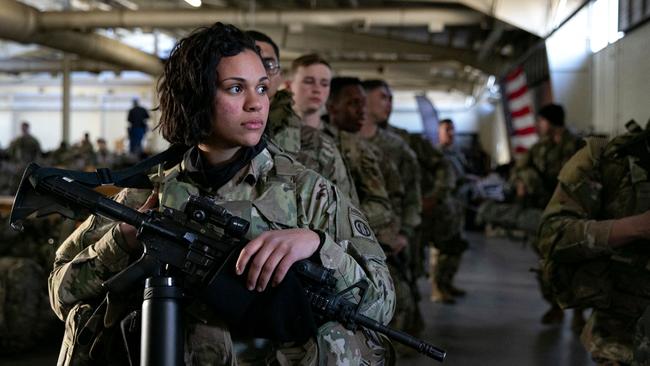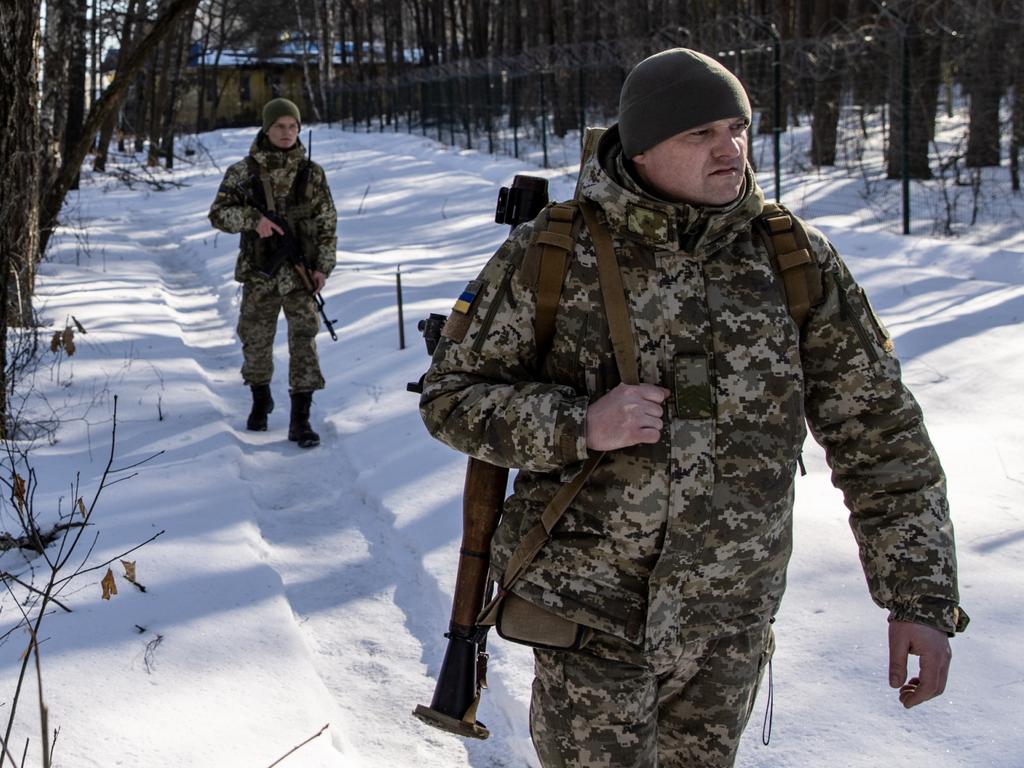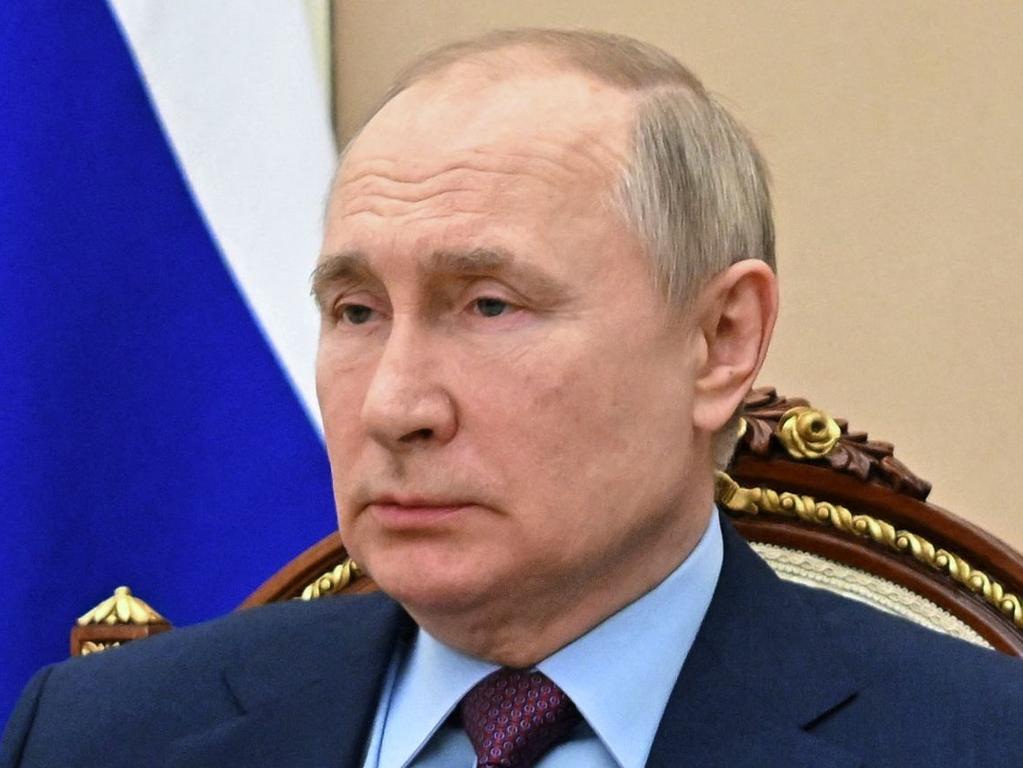Vladimir Putin’s games of war and peace over Ukraine
Russia has claimed it is winding down some of its military exercises and has raised the possibility of further talks, signalling a possible easing of the crisis over Ukraine.

Russia has claimed it is winding down some of its military exercises and has raised the possibility of further talks, signalling a possible easing of the crisis over Ukraine.
Late on Tuesday (AEDT), Russia said some of its thousands of troops deployed near Ukraine were beginning to return to their bases, after a build-up of Moscow’s army around Ukrainian borders spurred fears of an invasion.
“Units of the southern and western military districts, having completed their tasks, have already begun loading on to rail and road transport and today they will begin moving to their military garrisons,” a Russian defence ministry spokesman said.
The comments carried by Russian news agencies came ahead of a scheduled meeting between German Chancellor Olaf Scholz and Russian President Vladimir Putin to defuse tensions over Ukraine.
But the Pentagon insists Russian forces on the border with Ukraine were still growing and Western intelligence officials warned that Wednesday could mark the start of an invasion.
“It is a distinct possibility, perhaps more real than ever before, that Russia may decide to proceed with military action, with new Russian forces continuing to arrive at the Ukrainian border,” US State Department spokesman Ned Price said. He added that the US was relocating its embassy in Kiev to the western Ukrainian city of Lviv, citing a “dramatic acceleration” in the Russian build-up.
Secretary of State Antony Blinken said: “We strongly urge any remaining US citizens in Ukraine to leave the country immediately.”
France’s Foreign Minister Jean-Yves Le Drian warned that “all the elements” were in place for Russia to wage a “major offensive”. But Pentagon spokesman John Kirby said they still did not believe Moscow had made a final decision on whether to invade.
He also took aim at China, saying: “Their tacit support, if you will, for Russia is deeply alarming and frankly even more destabilising to the security situation in Europe.”
During a carefully choreographed meeting with Mr Putin, his Foreign Minister, Sergei Lavrov, said “there is always a chance” to reach an agreement with the West.
Exchanges with leaders in European capitals and Washington showed enough of an opening for progress on Russia’s goals to be worth pursuing, he told Mr Putin. “I would suggest continuing,” Mr Lavrov said in televised remarks.
His comments came despite Russia’s ambassador to the EU warning that Moscow could invade Ukraine if “provoked to do that” by an attack on Russia citizens inside the country.
Vladimir Chizhov said the world “shouldn’t be surprised” if Moscow responded with a “counter-attack” in such a scenario. The threat echoed warnings by the US and Britain that Russia was planning so-called “false flag” incidents as a pretext for an invasion of Ukraine.
Mr Scholz visited Kiev on Tuesday, vowing that Berlin and its Western allies would maintain support for Ukraine’s security and independence. He urged Russia to take up “offers of dialogue”.
Following talks with Ukrainian President Volodymyr Zelensky, Mr Scholz said there was “no reasonable justification” for Russia’s build-up of troops.
European leaders have warned that the build-up is the worst threat to the continent’s security since the Cold War, with Mr Putin demanding a rollback of Western influence in eastern Europe and a ban on Ukraine joining NATO.
Mr Zelensky repeated during a press conference with Mr Scholz that joining the NATO alliance would guarantee Ukraine’s survival. Western allies have prepared what they warn would be a crippling package of economic sanctions in response to any attack, although Moscow has repeatedly said it has no such plans.
Recent Russian military exercises, including with Belarus, where the US said Moscow had dispatched 30,000 troops for more than a week of drills, have caused rising concern. Russian Defence Minister Sergei Shoigu told Mr Putin that some of the drills were “ending” and more would end “in the near future”.
US intelligence officials worry that weeks of crisis talks have given Russia the time to prepare a major offensive should Mr Putin decide to attack Ukraine.
AFP







To join the conversation, please log in. Don't have an account? Register
Join the conversation, you are commenting as Logout